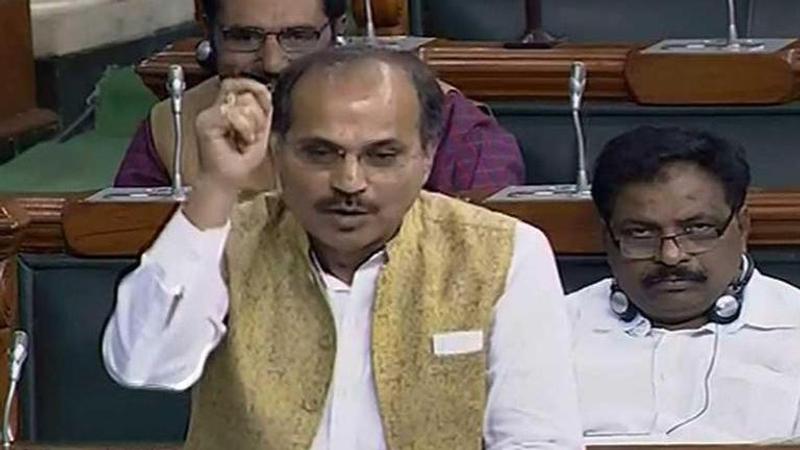Published 17:51 IST, December 12th 2019
'Kashmir phenomenon has been replicated in North-East': Adhir Ranjan Chowdhury
Congress leader Adhir Chowdhury said that both Kashmir & the North-East have strategic importance & the government should pay more attention to the situation.

Congress leader Adhir Ranjan Chowdhury on Thursday targeted the BJP-led government over the passage of the Citizenship Amendment Bill (CAB) saying that large parts of North-East were "in turmoil" and "Kashmir phenomenon was being replicated". Raising the issue in the Lok Sabha during Zero Hour, Chowdhury said that Army had been deployed due to violence and the internet has been 'discontinued'.
Chowdhury said that both Kashmir and the North-East have strategic importance and the government should pay more attention to the situation. He also said that India's relations with Bangladesh should not have an impact as China and Pakistan were ready to take advantage of any such situation.
"We are observing with great dismay and consternation that in the wake of CAB passed in both the Houses, the entire North-East, barring a few places, is in turmoil. We are witnessing that the Kashmir phenomenon has been replicated in the North-East. It has become Kashmir. The situation in Kashmir has not normalised due to these people and North-East is becoming like that," he said.
Chowdhury referred to purported remarks of Bangladesh Foreign Minister and noted that 20,000 Durga Puja pandals were erected but Speaker Om Birla asked him to make such references. "Bangladesh and UK can not run the Indian Parliament. It will function according to the Constitution. It will not be guided by any country," Birla said.
BJP members protest over Chowdhury's remarks.
Parliamentary Affairs Minister Pralhad Joshi hit back and accused Congress of instigating violence in the North-East. Joshi pointed towards the Congress benches and said, "You are instigating violence in the North-East. I condemn their attitude," he said. Joshi stressed that the BJP-led government has already lauded the present Bangladesh government for their efforts in the treatment of minorities.
Meanwhile, Chowdhury said that conditions had become such that BJP MPs will have to "infiltrate" to go to their homes in Assam. "The North-East is burning," he said. BJP lawmaker Nishikant Dubey said that Bangladesh was a secular country when it was created but became an Islamic country overnight.
Dubey said that Congress should look at its history and alleged that former Congress MP MK Subba had encouraged infiltration, claiming that he was a Nepali citizen. "The entire North-East has turned Christian. When Pope came in 1986 due to Rajiv Gandhi and Sonia Gandhi...Christianity has risen, the church is involved, Bangladesh is involved," he said.
Protest over CAB
The government on Thursday decided to deploy the Indian Army personnel who were so far kept on standby due to protests against CAB continuing in Assam despite prohibitory orders. Five columns of the Army, or roughly 750 soldiers, were requisitioned and deployed in the most sensitive pockets to prevent the complete breakdown of law and order.
In neighbouring Tripura, where the anti-CAB protests have flared up in tribal-dominated regions, the government has ordered the deployment of three companies of Assam Rifles. A day earlier, two companies of paramilitary forces were sent to Kanchanpur and Manu regions -- which emerged as the hub of the ongoing protests.
About CAB
The Citizenship (Amendment) Bill seeks to grant Indian citizenship to refugees from Hindu, Christian, Sikh, Buddhist and Zoroastrian communities who fleed fearing religious persecution from countries like Pakistan, Afghanistan, and Bangladesh, and entered India on or before December 31, 2014. CAB was approved by the Parliament after Rajya Sabha passed the bill on December 11.
While 125 members of the Rajya Sabha voted in favour of the bill,105 MPs voted against it. BJP's former ally Shiv Sena did not participate in the voting. The Bill, which grants citizenship to the non-Muslims who arrived in India before December 31, 2014, was approved by the lower house of the parliament on Monday night with a majority of 311 votes against 80 votes. 391 members were present in Lok Sabha at the time of voting.
Updated 18:53 IST, December 12th 2019




